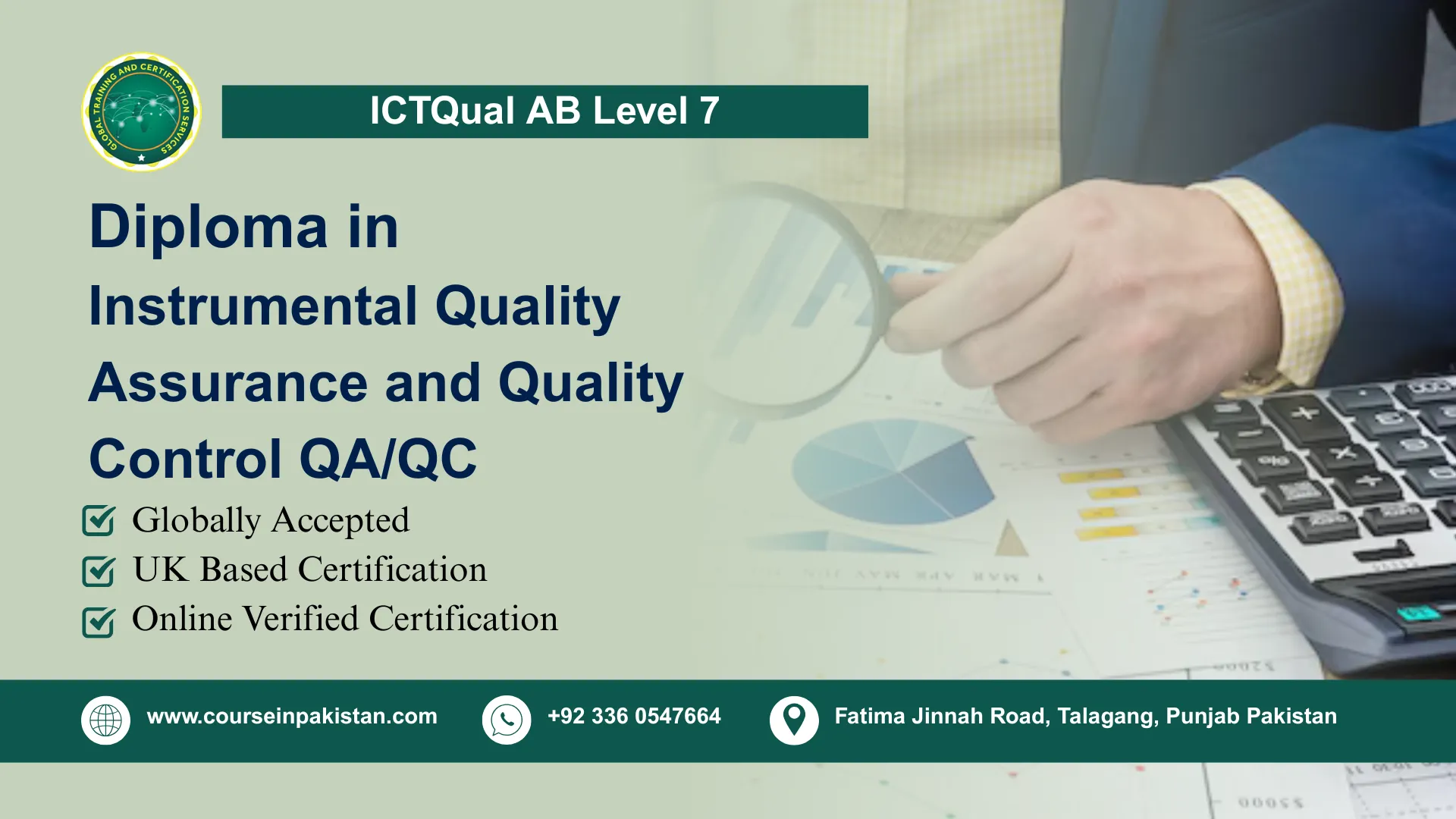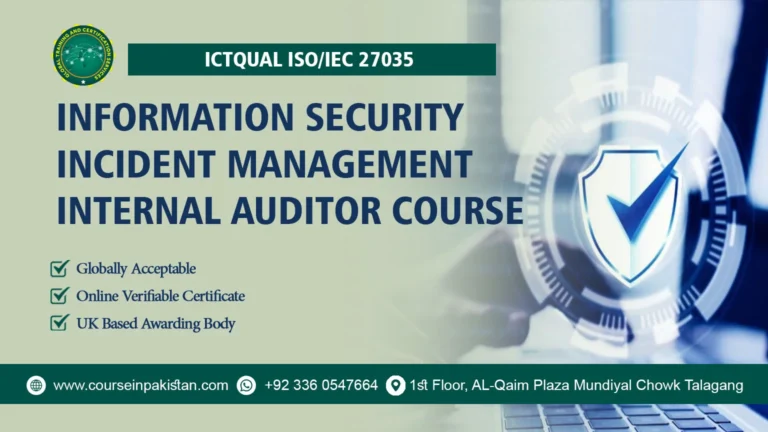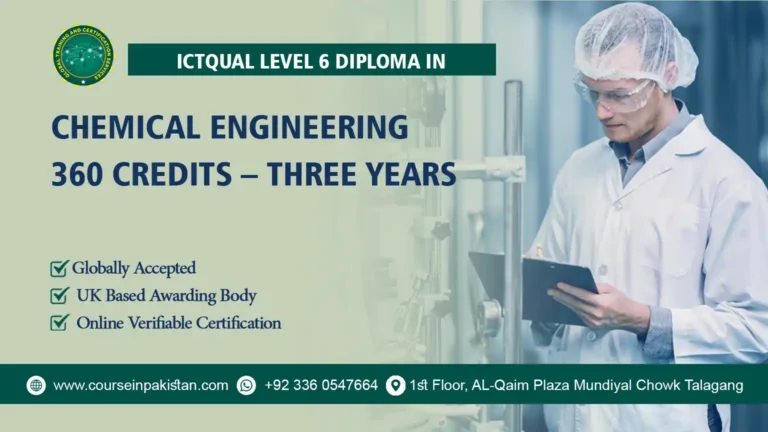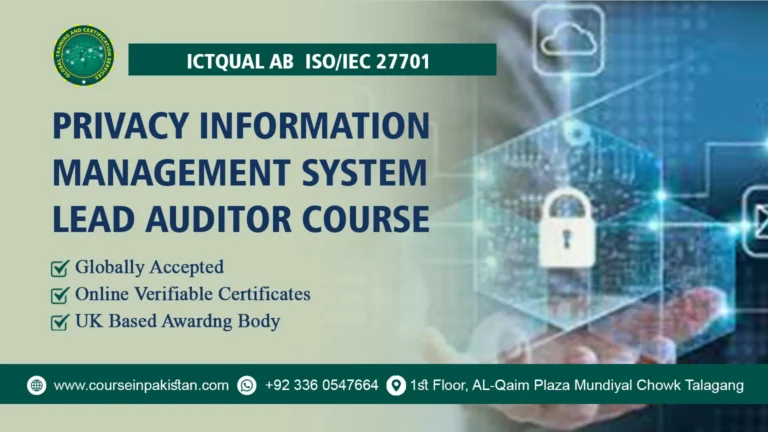
The ICTQual AB Level 7 Diploma in Instrumental Quality Assurance and Quality Control (QA/QC) is an advanced qualification tailored for professionals aiming to lead quality initiatives in complex industrial and laboratory environments. This diploma builds upon foundational QA/QC principles and introduces strategic, technical, and regulatory dimensions essential for high-level decision-making and system optimization.
As industries evolve with increasing demands for precision, compliance, and efficiency, the need for expert-level QA/QC professionals has become critical. This program addresses that need by offering in-depth training in instrumentation, calibration, validation, and quality system integration. Learners will explore advanced analytical techniques and global standards such as ISO, GMP, and sector-specific protocols.
Designed for experienced professionals, this diploma empowers learners to take on leadership roles in quality assurance, regulatory compliance, and operational excellence. Whether you’re in pharmaceuticals, oil and gas, food processing, or manufacturing, the Level 7 Diploma equips you with the strategic insight and technical mastery to drive quality performance across the organization.
Course Overview
The ICTQual AB Level 7 Diploma in Instrumental QA/QC offers a rigorous curriculum focused on advanced quality control methodologies, instrumentation systems, and strategic quality planning. Learners will gain expertise in high-level inspection protocols, multi-tiered compliance frameworks, and the integration of quality systems into large-scale projects. The course emphasizes leadership in QA/QC operations, with modules covering risk-based thinking, continuous improvement, and regulatory alignment.
Through a combination of theoretical instruction, case studies, and applied learning, participants will develop the ability to design, implement, and audit complex QA/QC systems. The program also includes specialized training in calibration, loop checking, commissioning, and adherence to standards such as Aramco, NEC, and NEMA. Graduates will be prepared to lead quality teams, manage audits, and contribute to strategic quality initiatives across diverse industrial sectors.
Key Highlights of the Course:
Advanced Level 7 diploma recognized across global QA/QC industries
Strategic focus on quality planning, system integration, and regulatory compliance
In-depth training in instrumentation, calibration, and commissioning practices
Coverage of international standards including ISO, GMP, NEC, NEMA, and Aramco
Real-world case studies and project-based learning for practical application
Ideal for senior professionals in pharmaceuticals, oil and gas, manufacturing, and engineering
Flexible learning format suitable for working professionals and team leaders
Course Benefits
This diploma offers a wide range of professional and academic advantages for learners committed to excellence in QA/QC leadership.
Strategic Career Advancement
- Qualify for senior roles such as QA/QC Manager, Compliance Director, or Technical Auditor
- Enhance your leadership profile with advanced quality planning and system integration skills
- Position yourself as a key contributor to organizational quality strategy
Technical and Regulatory Expertise
- Master advanced instrumentation techniques and calibration protocols
- Ensure compliance with global standards including ISO, GMP, NEC/NEMA, and Aramco
- Lead audits, inspections, and commissioning activities with confidence
Industry Versatility
- Apply your skills across multiple sectors including pharmaceuticals, energy, food, and manufacturing
- Adapt to evolving industry requirements and regulatory landscapes
- Increase your value in multidisciplinary teams and international projects
Continuous Professional Development
- Build a foundation for further academic progression or specialized certifications
- Stay current with emerging technologies and quality methodologies
- Cultivate a mindset of innovation and continuous improvement
By completing the ICTQual AB Level 7 Diploma, learners gain not only technical mastery but also strategic insight, positioning themselves as leaders in the global QA/QC landscape.
Course Study Units
This qualification, the ICTQual AB Level 7 Diploma in Instrumental Quality Assurance and Quality Control QA/QC, consists of 6 mandatory units.
- Designing and Auditing ITPs for International QA/QC Projects
- Global Best Practices in Inspection Checklists and Compliance Frameworks
- Strategic Material Management, Preservation, and Supply Chain QA/QC
- Comparative Analysis of NEC, NEMA, and Aramco Standards in Instrumentation Projects
- Advanced Instrumentation Systems – Tubing, Junction Boxes, Cabinets, and Process Elements under International Standards
- Leadership in Loop Checking, Testing, and Commissioning – Managing Global Projects
Learning Outcomes
The ICTQual AB Level 7 Diploma in Instrumental QA/QC is designed to develop strategic, technical, and leadership capabilities in quality assurance and control across global industrial projects. Each unit equips learners with advanced competencies to manage complex QA/QC systems, ensuring compliance, efficiency, and excellence in instrumentation and process control.
Designing and Auditing ITPs for International QA/QC Projects
By the end of this unit, learners will be able to:
- Design comprehensive Inspection and Test Plans (ITPs) aligned with international project requirements.
- Audit ITPs for effectiveness, traceability, and regulatory compliance.
- Integrate ITPs into project workflows and quality management systems.
- Collaborate with cross-functional teams to implement inspection protocols.
- Identify gaps and risks in QA/QC planning and propose corrective actions.
- Document and report audit findings for continuous improvement.
Global Best Practices in Inspection Checklists and Compliance Frameworks
By the end of this unit, learners will be able to:
- Develop and implement inspection checklists based on global standards and best practices.
- Conduct multi-level inspections to ensure thorough quality verification.
- Align inspection procedures with ISO, GMP, and sector-specific compliance frameworks.
- Train teams in effective checklist usage and inspection documentation.
- Analyze inspection data to identify trends and improve quality processes.
- Ensure consistency and accountability in inspection activities across projects.
Strategic Material Management, Preservation, and Supply Chain QA/QC
By the end of this unit, learners will be able to:
- Establish QA/QC protocols for material receiving, verification, and traceability.
- Implement preservation techniques to maintain material integrity during storage and transit.
- Manage non-conformance reporting and resolution within supply chain operations.
- Coordinate with vendors and logistics teams to ensure quality compliance.
- Monitor supply chain risks and develop mitigation strategies.
- Integrate material QA/QC into overall project quality planning.
Comparative Analysis of NEC, NEMA, and Aramco Standards in Instrumentation Projects
By the end of this unit, learners will be able to:
- Interpret and compare NEC, NEMA, and Aramco standards for instrumentation installations.
- Apply relevant standards to cable trays, grounding systems, and conduit layouts.
- Evaluate compliance requirements across different regulatory environments.
- Recommend design and installation practices based on project-specific standards.
- Document standard applications and deviations for audit readiness.
- Collaborate with engineering teams to resolve compliance challenges.
Advanced Instrumentation Systems – Tubing, Junction Boxes, Cabinets, and Process Elements under International Standards
By the end of this unit, learners will be able to:
- Design and inspect advanced instrumentation systems including tubing, junction boxes, and cabinets.
- Ensure installation and configuration meet international standards and client specifications.
- Conduct quality checks on process elements such as transmitters, sensors, and controllers.
- Troubleshoot instrumentation issues and recommend corrective actions.
- Maintain documentation for calibration, installation, and inspection activities.
- Integrate instrumentation QA/QC into broader project quality systems.
Leadership in Loop Checking, Testing, and Commissioning – Managing Global Projects
By the end of this unit, learners will be able to:
- Lead loop checking and testing procedures for industrial control systems.
- Manage commissioning activities across large-scale, multi-disciplinary projects.
- Coordinate with stakeholders to ensure readiness and compliance during system startup.
- Document commissioning results and prepare handover packages for clients.
- Apply safety and quality standards throughout testing and commissioning phases.
- Resolve technical and operational challenges during final project delivery.
These learning outcomes reflect the advanced scope and strategic depth of the ICTQual AB Level 7 Diploma in Instrumental QA/QC. Graduates of this program will be equipped to lead quality initiatives, manage complex instrumentation systems, and ensure compliance with international standards across diverse industrial sectors. The diploma fosters both technical mastery and leadership excellence, preparing professionals to thrive in global QA/QC environments.
Who is This Course For?
This advanced diploma is designed for professionals who aspire to lead quality assurance and control initiatives in complex, high-stakes industrial environments. The ideal learner is someone with a strong foundation in QA/QC and a desire to expand their strategic, technical, and leadership capabilities.
- Experienced QA/QC Professionals Individuals currently working in quality roles who want to transition into senior or leadership positions.
- Project Managers and Engineers Professionals managing large-scale industrial projects requiring integration of quality systems and instrumentation standards.
- Compliance and Audit Specialists Those responsible for regulatory adherence, internal audits, and quality documentation across global operations.
- Instrumentation and Process Control Experts Technicians and engineers seeking mastery in advanced instrumentation systems and international compliance frameworks.
- Graduates with Level 6 Diplomas or Equivalent Learners who have completed prior QA/QC qualifications and are ready for strategic-level training.
This course is ideal for learners who are analytical, detail-oriented, and committed to driving quality excellence across international projects.
Future Progression
- Graduates of the Level 7 Diploma can pursue a range of high-impact career opportunities and professional roles:
- Senior QA/QC Manager or Director Lead quality departments and oversee compliance across multi-site operations.
- Global Quality Consultant or Auditor Provide expert guidance and conduct audits for international clients and regulatory bodies.
- Project Quality Lead in Engineering or Manufacturing Manage QA/QC systems in large-scale industrial, energy, or infrastructure projects.
- Regulatory Affairs Specialist Ensure alignment with global standards such as ISO, GMP, NEC, NEMA, and Aramco.
- Trainer or Mentor in QA/QC Practices Share expertise through corporate training, workshops, or academic instruction.
Academic Pathways:
This diploma also supports academic advancement for learners seeking further specialization or higher education:
- Master’s Degree in Quality Management or Engineering Progress into postgraduate studies focused on quality systems, industrial engineering, or regulatory affairs.
- Advanced Certifications Pursue specialized credentials such as ISO Lead Auditor, Six Sigma Black Belt, or Lean Manufacturing.
- University Bridging Programs Use the diploma to gain entry into university-level programs in science, engineering, or management.
- Research and Development Opportunities Engage in academic or industrial research focused on instrumentation, compliance, and process optimization.
The ICTQual AB Level 7 Diploma in Instrumental Quality Assurance and Quality Control (QA/QC) is a transformative qualification for professionals aiming to lead quality initiatives in global industrial environments. With a curriculum rooted in international standards and advanced instrumentation practices, this diploma empowers learners to manage complex QA/QC systems, drive strategic improvements, and ensure regulatory compliance. Whether advancing in your current role or preparing for leadership, this program provides the expertise and credibility to thrive in the evolving world of quality assurance.






